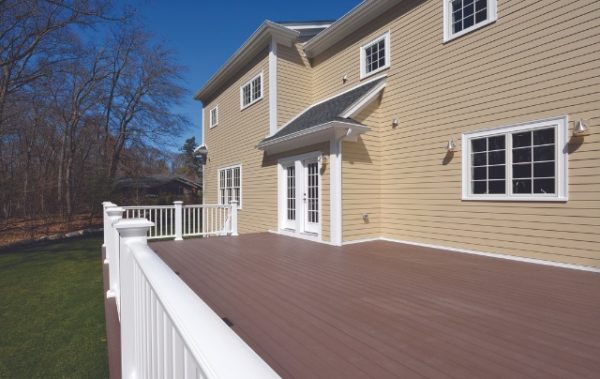Cutting-Edge Careers in Home Improvement

Shop is cool again! Learn how to land a job in the growing home industry.
According to the National Center for Construction Education and Research (NCCER) via the Construction Labor Market 20/20 Foresight Report, by 2022, there will be a demand for more than 1.4 million craft professionals across the U.S. In Georgia alone, there is a need for nearly 300,000 craft labor professionals through 2022. A craft labor professional is a tradesperson in a field that requires a specific skill set to execute manual labor. These profitable career paths, which include woodworking, interior design, landscape architecture and more, are today providing the men and women in these roles a lifetime of financial freedom, community legacy, and personal satisfaction.
In fact, a 2015 study found construction professionals to be among the happiest in the workforce. Perhaps it’s thanks to a bustling economy, maybe it’s due to the surge in DIY and home improvement television, or frankly, it could be because people do not want to be stuck behind their computers all day, but regardless the cause, the home improvement industry is without question experiencing a renaissance. From high school classes and college programs to makerspaces and more, there are several ways to forge a future in this industry.
Start them young
As you might have surmised, encouraging kids from a young age to pursue careers in the home improvement industry is a key part of closing the deficit. Initiatives like NCCER’s Build Your Future works to close the gap by giving children, parents and educators the tools they need to keep kids interested in construction throughout their childhood and well into high school and beyond.
When it comes to convincing parents and students that construction is a viable, opportunistic career path, Jennifer Wilkerson, NCCER’s director of marketing, hits them hard with facts. “Right now, the college debt in the United States is $1.5 trillion. For $1.5 trillion, you could buy 1,000 NFL franchises. The average time it takes someone right now to pay back a bachelor’s degree is 21 years. In construction, you can earn as you learn.” Perhaps her most intriguing point for parents and students is the career potential. Wilkerson says, “It’s really cool that construction is one of the very few industries you can go into and start out on your tools, just learning a trade or a craft, and then become the CEO of a company. There’s probably no other industry that allows you to do that so easily.” NCCER.org
High schoolers to home pros

At Cross Keys High School and surrounding high schools, shop is cool again! Once portrayed in pop culture as the class for leather jacket-wearing greasers, contemporary shop classes offer more than just an opportunity to work with your hands. For many DeKalb County students, career-centric programs are opening imaginations and possibilities beginning in high school.
As one of three technical high schools in the county, DeKalb High School of Technology North, which is housed inside of Cross Keys High School, enrolls students in its Career, Technical and Agricultural Education (CTAE) program. Classes are offered in eight focus areas including construction and manufacturing. Once in the CTAE program, students can choose to specialize in carpentry, electrical, masonry or plumbing. CTAE assistant principal, Scherita Daniel pridefully explains that CTAE is preparing students for lifelong experiences that are founded in students’ interests. Plus, she says, parents should pay attention. “Find out with your kids where their passion is because construction’s paying as much as a person like me with three degrees.”
Through programs like CTAE, students are able to graduate from high school and go confidently into the workforce—in many cases with a job offer in hand. Daniel says local businesses begin working with enrolled students, and then seek them out after graduation. “They’re coming out to work with our students on campus. They’re coming to train our kids, and then they’re hiring our kids.” Talk about career readiness! CrossKeysHS.DeKalb.K12.Ga.us
Collegiate creativity

As a premier school for art and design, The Savannah College of Art and Design is often praised for being ahead of the curve. The school’s interior design programs achieved a No. 1 ranking in 2018 from DesignIntelligence’s list of “America’s Best Architecture & Design Schools,” and is often looked to for its innovative perspective.
The college has several programs that help prepare students for postgraduate careers in home improvement. One such initiative is its SCADpad microhousing experiment, a community of three 135-square-foot residences situated on the fourth floor of the SCAD Atlanta parking deck. Exclusively designed by students, alumni, and faculty, pupils learn key sustainable, actionable solutions for real-world design scenarios.
“Every design decision needs to be framed under the principles of improving the quality of life for everyone,” says Victor Ermoli, IDSA, MEDes, dean of the School of Design, The Savannah College of Art and Design. “Sustainability principles are essential to ensure that the build solutions minimize the consumption of resources (reduce pollution), maximize the economic returns from the projects, and enhance the quality of life in the individual and community basis. All these principles are the reasons why we do projects such as the SCADPad. Students gain hands-on experience in realizing their innovative design concepts and apply the theories and principles learned in the classroom to real-life situations, which is a crucial aspect of educating the next generation of creative designers.” SCAD.edu
Other four-year institutions such as the University of Georgia allow students to get their hands dirty thanks to its Landscape Architecture program. “Our students have numerous ways to get involved with hands-on design projects to help shape their communities,” says Rose Tahash, coordinator of undergraduate services in the College of Environment + Design at the University of Georgia.

In the University of Georgia’s Design Charrettes program, students are tasked with solving landscape architecture problems throughout Georgia. If the solutions presented are accepted, these ideas are implemented in an effort to make a difference in various communities. UGA.edu
The Georgia Institute of Technology offers a Bachelor of Science in Architecture. It also features a robust School of Building Construction, which houses an undergraduate certificate in Building Construction that can be added to a bachelor’s degree, a Master of Real Estate Development, and more. The school’s programs are grounded in design, technology, and science and have led to a 94 percent job placement rate among students. The university also hosts an annual landscape architecture lecture in the spring where students and the general public can meet leaders in the field, such as famed landscape architect Mikyoung Kim, and inquire about career advancement and project solutions. GaTech.edu
Kennesaw State University and Georgia Southern University both offer degrees in Construction Management along with access to award-winning student organizations and scholarships. The National Association of Home Builders Kennesaw State University Student Chapter has won the Outstanding Student Chapter award for three years, including 2019—earning the group plenty of notoriety while enabling students to brush elbows with top businesses and firms. Kennesaw.edu; GeorgiaSouthern.edu

Creativity has its own spin at Gwinnett Technical College as it has been a leading career-focused college in the Atlanta area for more than 35 years. Its expansive degree, diploma and certificate programs include a wealth of options for interested students, particularly for those seeking skilled trade careers. Through its Automotive, Construction and Trades division, the college has many programs of study including Drafting Technology, Air Conditioning Technology, Residential Construction Management, and more. The school also offers Interior Design through the division of Art and Design. Each program prepares students to go seamlessly from the classroom to the crew and eventually, even CEO.
Melissa Smith, the director of communications says, “Gwinnett Tech paves the way for the future of this industry with their mission to produce qualified workforce-ready professionals.” How? Smith says it’s through Launch Pointe, Gwinnett Tech’s Center for Career Experience. “Launch Pointe works directly with industry partners to provide students with internships and apprenticeships directly related to their field of study,” she explains. In addition to Launch Pointe,
Gwinnett Tech also works closely with industry organizations. The residential construction program, for example, is directly affiliated with the National Association of the Remodeling Industry, and students have an opportunity to become members and regularly attend meetings. With classes at multiple campuses via an assortment of methods (including online and weekend courses), Gwinnett Tech is an ideal option for those seeking a career change. GwinnettTech.edu
More than a hobby

Not quite ready to commit to a career change? Try joining a local makerspace, a collaborative community for curious tinkerers to explore, learn and create. Many makerspaces have advanced technological tools like 3D printers and laser cutters, but you’re almost always guaranteed to find the usual toolbox favorites like screwdrivers and hammers, too.
Freeside Atlanta, located in the burgeoning West End neighborhood, is the city’s oldest makerspace. As a member-supported nonprofit, all of Freeside’s equipment was either donated or built by members. These advanced, often
hard-to-access tools are available at members’ fingertips who often use them to create incredible things. One member, a podiatrist, used a 3D printer to prototype a foot prior to an impending surgery.
Board member, secretary and teacher Kali Wagner says, “You can come into Freeside, having never held a screwdriver in your life and ask questions. We give you a starting point [to] get your feet wet to basically explore and see what else is out there. Pretty much whatever you want to learn, we’re here; we’ll help you through it.”
Freeside’s membership hovers around 65 people, but Wagner is hoping to expand that. “More people means more skills, and we like that. We like having people who know things that I don’t necessarily know, or that somebody else doesn’t necessarily know because that’s new stuff that they can learn.” Want to join the makerspace revolution? Attend one of Freeside’s monthly open house meetings every second and fourth Tuesday to get started or try your hand at one of the classes open to nonmembers such as Intro to Woodworking, Intro to 3D Printing, Shop Tool Basics, and more. FreesideAtlanta.org
Ready to work? Here are some home improvement careers to consider:
• Architect
• Brickmasons, blockmason, and stonemason
• Carpenter
• Carpet, floor, and tile installer and finisher
• Cement mason, concrete finisher, and terrazzo worker
• Civil engineer
• Construction laborer
• Construction management
• Drywall installer, ceiling tile installer, and taper
• Electrician
• Equipment operator
• Framer
• Glazier
• Groundskeeper
• Home appraiser
• Home inspector
• HVAC technician
• Insulation worker
• Interior designer
• Iron worker
• Landscape architect
• Master gardener
• Painter
• Pipelayer, plumber, pipefitter, and steamfitter
• Plasterer and stucco mason
• Remodeler
• Roofer
• Site layout/survey engineer
• Structural iron and steel worker
• Welder
Professional organizations
• American Society of Interior Designers (ASID), Ga.ASID.org
• Design Collective ATL, DesignCollectiveAtl.com
• Greater Atlanta Home Builders Association (GAHBA), AtlantaHomeBuilders.com
• National Association of the Remodeling Industry (NARI) , NARIAtlanta.org
• National Kitchen & Bath Association (NKBA), NKBAGa.org

Powder room renos to welcome back visitors with style

Tips for Shopping ADAC

Winter landscaping in Atlanta

Award-Winning Kitchens, Baths, Interior Design and More

Atlanta’s NKBA Designs of Distinction 2019 Winners

100 Things to Know Before You Remodel

What’s the simplest way to upgrade your window treatments?







